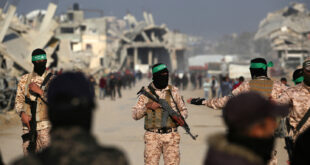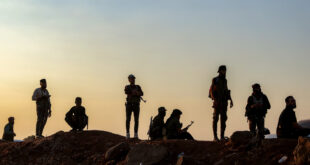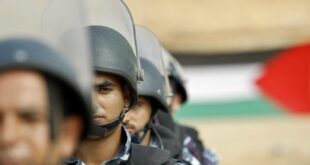KFAR ZABAD, Lebanon — It was born in the Arabian desert more than 1,500 years ago and is now being revived in the battle-scarred greenery of Lebanon. Already its success is heralding a regional renaissance.
The pre-Islamic system of environmental protection known as “hima” — Arabic for protected area — means that the local population rather than a distant authority in Beirut decides how to manage the ecosystem, and also to reap its benefits.
Now the village of Kfar Zabad in the eastern Bekaa valley, where overuse of land and water almost destroyed once vast wetlands, has seen the return of migrating birds. Hopefully, the ecotourists will soon flock there as well.
“Hima means sustainable use of resources by and for the local community,” says Assad Serhal, whose Society for the Protection of Nature in Lebanon has set up two such projects in Lebanon since 2004, Kfar Zabad being one of them.
Although their first use is unrecorded, himas were enshrined by the Prophet Mohammad in the 7th century, and the success of the system here has meant other Lebanese villagers are now clamouring to sign up for it.
The scarce natural resources of Mohammad’s homeland of Saudi Arabia meant that tribes had to deal with the negative effects of land overuse more rapidly than in verdant Europe where environmentalism is a relatively recent concern.
Before Mohammad, himas were often abused by tribal leaders to monopolise hunting or grazing rights. But with the advent of Islam came a religious understanding of the interdependence of all God’s creations.
“The system is about equality and the under-privileged, originally it was about giving land to orphans or women who lost their husbands in war, [or] the people who suffer in catastrophes like drought,” says Serhal, a US-trained wildlife ecologist.
To this day, it is still haram — prohibited — to harm any animal or plant in or around the Saudi holy cities of Mecca and Medina.
The revival of this ancient practice in Lebanon began when Serhal and his colleagues were poring over old maps of the country, which featured hundreds of areas marked as “himas”, a word that was new to his conservation lexicon.
While an internationally recognised Important Bird Area (IBA) already existed in Kfar Zabad, it was largely ignored by the villagers because they felt it had been imposed on them from outside and they were unable to see its benefits.
Once the advantages of a hima had been explained to them, however, the community voted to establish one — and a decree was issued giving the municipality power to manage resources as if it were the central government.
“Lots of people were against it at first. They thought it was about bringing in wild animals in cages,” says the silver-bearded Serhal, scanning the recently dug waterways for returning birds.
Provoking the ire of wealthy hunters coming from Beirut, the municipality banned hunting — which in any case has been illegal in Lebanon for years — and started to divert irrigation channels to increase the depleted wetlands in a bid to lure migrating birds to stop off once more.
Ecotourism projects to replace lost revenue from hunting include building a guesthouse for visitors — complete with telescope for birdwatching — and renewing traditional activities such as weaving baskets to sell to guests.
Today, birds of prey circle above and furtive squawking is heard from nearby rushes as the bang of hunters’ guns in unprotected neighbouring communities echoes off the mountainside.
“They know they’re safe here — birds are more intelligent than people think,” Serhal says with a smile.
But the nascent hima was propelled towards near collapse by Israel’s summer bombardment. Farmers were unable to tend their crops for fear of being blown up, and the community took in more than 100 families from already razed areas in the south of the country.
During the war, Serhal sought the help of other non-governmental groups to help the hima’s human inhabitants — a novel experience for a wildlife organisation — for fear the sudden influx would strain the community’s resources, especially water, to breaking point. “It’s because we helped the environment that we get this and no other municipality in the region does,” says village head Assim Shukr, proudly welcoming the latest batch of aid, including water-recycling equipment and food.
“There is jealousy,” adds Shukr. “Other villages want a hima as well, but we said ‘no’ — there are criteria” such as already having an IBA. With countries around the region also expressing an interest in the system, Serhal says the next step will be to draw up a 21st-century definition of hima, something he hopes will be done at an upcoming convention in Yemen.
“We’re heading for international recognition of hima,” he says, adding that Saudi Arabia has just asked him to come and explain the benefits of a system created all those centuries ago in the land that gave birth to Islam.
 Eurasia Press & News
Eurasia Press & News



